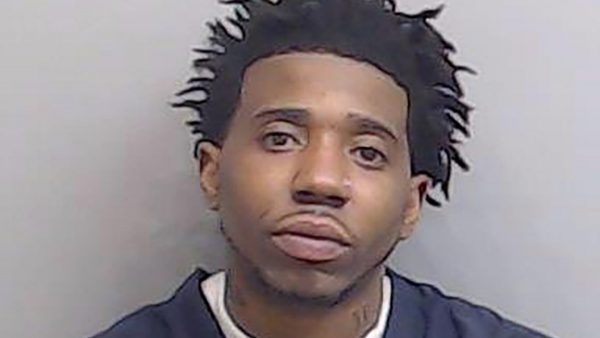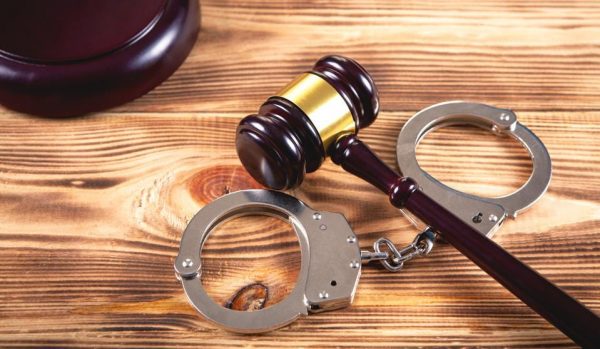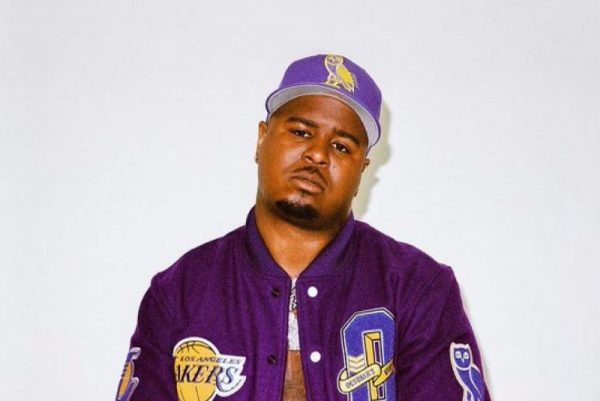
Tay-K Questions 55-Year Murder Sentence: ‘I Really Just Need One Chance at Adulthood’



Hip-Hop behind bars.
You could use two hands to count the number of rappers who currently would rather be spitting bars on the microphone than living behind them. We have ten fingers, so lets count 10 notable rappers who are currently incarcerated.
In no particular order, YNW Melly, YFN Lucci, Pooh Shiesty, Casanova, Tay-K, Q Money, Hoodrich Pablo Juan, RondoNumbaNine, and Fam Goon Ralo are all locked up. This is just the list that we’ve accumulated. With more research, we could easily extend this list.



From Generation X to Generation Z, almost every era of Hip-Hop has had its share of rappers run into legal battles with the law. The judicial system has never been Hip-Hop friendly.
In the late ’80s, Slick Rick did a five year bid during the prime of his career. Snoop Dogg signed to Death Row Records just before being acquitted for first degree murder in 1993.

Two years later, one of the most influential rappers ever, Tupac Shakur, served eight months in prison on sexual abuse charges.
In 2001, Bad Boy artist Shyne Po went to jail for 10 years for his involvement in a night club shooting. In 2009, Lil Wayne sat down at Rikers Island for two years for possession of an illegal firearm.
Meek Mill was arrested and hit with reckless-endangerment charges for popping wheelies in 2017. He had to serve five months of his two-four year sentence. 34-year-old, Meek Mill, has been fighting the justice system since 19-years old.
This reoccurring history of America’s criminal justice system resenting rappers, who are mostly Black people, is a reflection of the cruel history of the relationship between the American government and the Black community.
Black history in the United States is well known to be connected with violent, unfair, and biased treatment against people of color. Slavery, segregation, and a broken economic infrastructure including the prison system all aided in the prevention of Black progression.

People of color were denied civil rights and liberties. Black people were socially discriminated against, and struggled to advance financially.
If Black people didn’t suffer from those living conditions, there wouldn’t be a need to listen to Public Enemy’s “Fight the Power.” Unfortunately, POC did suffer, but they took the struggle and expressed it through sound. As a result, the birth of Hip-Hop.
In the late ’70s, during the genesis of the genre, artist mostly used music as a rhythmic way to not only entertain and uplift people, but also a way to lyrically protest the problematic issues plaguing low-income Black communities.
After the civil rights movement, Hip-Hop stood as a united voice for issues like poverty, racism, inequality, criminal justice, police brutality, and anything else that oppressed Black communities.
While Black artist non-violently protested with lyrics, the American government developed its prison industrial complex. The prison system is an industrial sector, just as slavery was considered an agriculture and labor business.
The evolution of Hip-Hop happened simultaneous to the mass incarceration of people of color in America’s prison system. Is the parallel of this phenomena coincidental or is it systematic? We’re not here to determine that, but let me leave you with some facts.
According to a 2012 report from the Death Penalty Information Center, there have been at least 1276 executions in the United States since 1976. There are approximately 3,251 inmates on death row and Blacks represent 42% of these inmates (Death Penalty Information Center, 2011). This statistic is quite disproportional because African-Americans only represented 9.7 percent of the population back then.
So again, is this systematic or coincidental? Is the unpopular opinion true about rappers being targets by America’s criminal justice system? We are uncertain in every case, but if rappers are not targeted, many make themselves easy to become targets.
Many artist deviated from reciting the same unhealed stories of civil struggles. They became more aggressive with their approach, and the music went from peaceful to painful.
The emergence of rap music gradually made Hip-Hop more dangerous. The kumbaya rap era ended, and transitioned to “Wa da da dang Wa da da da dang (Ay!) Listen to my 9 millimeter go bang!”
Sadly, this created a new parallel.
The increase of violent music, increased Hip-Hop’s popularity. Rappers became cultural icons and their unruly substance made everybody want to listen to rap. In 2017, Hip-Hop officially became America’s number one music genre, and all eyes were on the culture. This put the culture under a microscope, or better yet, put the culture on social media.
Artists should be able to utilize technology and use social media as a promotional tool. Instead we’ve seen more then a few rappers expose and document their alleged involvement in criminal activity online.

The culture began to see more glorification of street life, rising criminal activity and dismissive attitudes towards the law. New-aged rappers seemingly love to display their rebellious behavior. Coincidentally, the feds love it too. It makes their job easier.
The Hip-Hop community fed up with the Hip-Hop police and blatant discrimination that rappers receive from the criminal justice system decided to take action.
In an effort to protect the artistic liberty of rappers, Jay-Z teamed up with other powerful leaders in Hip-Hop to push “Rap Music on Trial” (S.7527/A.8681)
“Rap Music on Trial” is a proposal of a new law in New York that will prevent the usages of lyrics on trial. The bill was written by Democratic Senator Brad Hoylman, Jamaal Bailey, and Catalina Cruz.
Jay-Z’s lawyer, Alex Spiro and University of Richmond Professor Erik Nielson co-wrote a letter to New York lawmakers in favor of the approval of this bill.
The bill aims to limit the admissibility of a artist’s lyrics as evidence. Instead, prosecutors will have to find “clear and convincing” evidence that the lyrics are “literal, rather than figurative or fictional.”
Hov along with superstars such as Meek Mill, Big Sean, Fat Joe, Kelly Rowland, Yo Gotti, Killer Mike, Robin Thicke, and more have all petitioned the letter.
New York rapper, Fat Joe said he is passionate about change and desires Hip-Hop to be treated fairly in the future.
“Our lyrics are a creative form of self-expression and entertainment – just like any other genre,” Fat Joe told Rolling Stone. “We want our words to be recognized as art rather than being weaponized to get convictions in court. I hope the governor and all the lawmakers in New York take our letter into consideration, protect our artistic rights and make the right decision to pass this bill.”
In 2017, the late South Central rapper, Drakeo the Ruler served three years in Los Angeles County Jail after the content of his songs and videos were used to prosecute him.

“They rap about their crimes,” said the prosecutor Shannon Cooley. Detective Hardiman agreed and told the court he used “the greatest crime-fighting tools on earth – Google and social media.”
Hardiman cited Drakeo’s lyrics where he allegedly spoke about driving around with a rival rapper “tied up in the back”.
The judge indicted Drakeo on multiple felonies. Charges included murder, conspiracy murder, criminal gang conspiracy, shooting from a vehicle, illegal possession of a firearm and a number of other charges. He faced a life sentence.
In 2020, Drakeo accepted a plea deal that helped acquit his murder charges. His lawyer, John Hamasaki spoke on the judges initial decision to prosecute his client.
“It really makes no sense, logically, from a criminal justice perspective,” Hamasaki said. “Their main crime was making music, videos, and raps. And those raps were offensive to the [lead] detective.”
Erik Nielson, is the co-author of a book on discrimination in Hip-Hop, Rap On Trial; Race, Lyrics, and Guilt in America. Nielson said he’s identified more than 500 total cases since 1991 in which rap has been used as evidence.
“Police rely on rappers’ music because it’s easy to watch YouTube videos and it’s often effective,” Nielson shared. “You don’t have to do police work, and you get convictions. It makes it very easy to pin crimes on people who were not involved.”
Hip-Hop is aware of this biased behavior by America’s criminal justice system, and it’s taking steps towards changing it. In no way should your bars lead you to a life behind them.
Continue this conversation on social media.
The post Hip-Hop Behind Bars: Rappers and America’s Criminal Justice System appeared first on The Source.